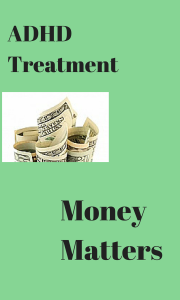Washington Nonprofit and State Organizations for ADHD concerns
Support and Information Find a provider Parenting Classes
Educational Issues Low income Help
Support and Information
ADHD and Mental Health Nonprofits
Parent Support groups Puget Sound area – CHADD – Children and Adults with ADHD
ADHD information and Support ADD freeSources
NAMI is the National Alliance on Mental Illness, the nation’s largest grassroots mental health. They work to raise awareness and provide essential and free referral, support, education, and outreach surrounding mental illness.
NAMI Washington has 23 NAMI affiliates
The link above works. Or copy and paste http://namiseattle.org/
Find a Provider
Learning Disabilities Association of Washington (LDAWA) provides a referral service to connect individuals – parents, children, teens, adults, and professionals – with resources throughout Puget Sound. Learning Disabilities Association of Washington is a state affiliate of the Learning Disabilities Association of America. New Online Directory
Call 211 to locate appropriate treatment and agencies. There’s also a website if you want to search for yourself. ADHD, Learning Disabilities or Parenting classes yield good results.
(Link works) Washington Information Network – 211
Washington State ADHD Treatment Providers – Note: ADD freeSources does not endorse or recommend any provider or services listed. Nor should not being on the list affect your choice of provider. Most of these were chosen because they were associated with ADD Resources or local CHADD groups at some time.
Ark Institute of Learning (Facebook page) – in Tacoma assists students with a variety of learning challenges including; dyslexia, language disorder, nonverbal learning disorder/visual-spatial processing disorder, dyscalculia, dysgraphia, specific learning disorder or disability, and attention issues. Provides assessments, training, and support – – Nonprofit, but services are billed at a regular rate.
Parenting Classes
CHADD’s Parent to Parent Training – 14 hour Webinar Course
Puget Sound Parenting Calendar → http://www.psasadler.org/calendar.pdf from the Puget Sound Adlerian Society (Give it a minute to load) Copy and paste URL
Catholic Community Services of Western Washington
Low-cost Parenting classes and counseling available at some locations
Education Issues Washington State
Washington P.A.V.E. Parent resource detailing the rights of children with disabilities to a free and appropriate education. 1-800-572-7368.
- Conducts workshops for parents and others on laws governing special education, testing and assessment, IEP’s, communication, 504 plans and other topics as needed.
- Staff assists parents individually to increase skills in working with their children’s teachers, therapists, and other team members to obtain appropriate educational services.
- Provides information about resources and specialists in your community.
- Has information about resources and laws in Washington and other states.
- Office of the Education Ombudsman is an agency within the Governor’s Office created to help elementary and secondary public school students and families in Washington understand how the public school system works, how to find education-related resources and how to resolve conflict with schools. This organization is independent and neutral and not a part of the state public education system.
Staff Seattle office-Toll-free: 1-866-297-2597
Phone interpreter services available
Fax: 206-729-3251
OEOinfo@gov.wa.gov
Low-Income Help
Diagnosis and Treatment for Children
Catholic Community Services in Whatcom and Skagit Counties offers specialized ADHD assessment, counseling, and care coordination for children of families with low income. Treatment includes collaboration regarding medication evaluation and management with primary care physicians, psychiatrists, and community clinicians. The clinic also provides parent education, behavior management classes, school consultation, and parent/teacher education.
Child Development Clinic – the University of Washington has been operating since 1965 and serves approximately 200 children each year. Each child visits the clinic one to three times during the year and is served by multiple clinicians at each visit. About 80% of clients seen at this clinic are less than nine years of age. Over 50% of children served are insured by Medicaid.
Clients are diagnosed with an array of developmental disabilities including intellectual disability, autism spectrum disorders, motor disabilities, learning disabilities, behavioral disorders, communication disorders, and attention-deficit hyperactivity disorder.
Catholic Community Services of Western Washington
Low cost Parenting classes and counseling available at some locations
Hope Sparks – Tin Can Alley in downtown Tacoma
Offers core behavioral health programs – Counseling, parent education and family support
Please help complete these resources. These are what I had saved in my files from 3 years ago with updated links. Leave a comment if you know of other organizations and services that pertain to ADHD.


